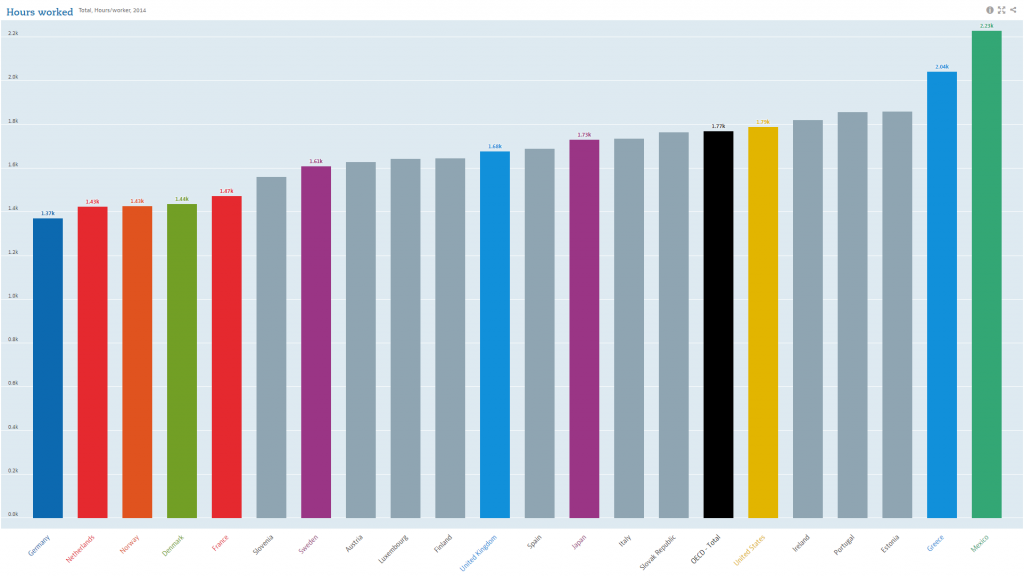Few ideas are more exciting for a happiness economist than a basic income. It sound like utopia: free money for everybody. Could it actually work?
The Swiss basic income referendum
The Swiss electorate had the chance to have its say on Sunday. And the answer is a resounding ‘no’: 77% of the population opposed the idea of a basic income. In the design for the Swiss referendum, the basic income would be unconditional: nothing would be demanded from citizens in exchange for the transfer of money. The level of the basic income would have to be set by law, according to the initiators, but they argued that 2,500 CHF for adults (around 2300 Euro) and 625 CHF for children would be an appropriate figure. That sounds like a lot, but remember that Switzerland is rich: a salary for a supermarket worker is around 3,000 CHF.
Proponents of the basic income argued that it would “enable the population to live a dignified life and to participate in public life”, providing people the freedom to live their life as they want. They also argued that basic income would be needed in an age where robotisation and digitisation would mean that many current jobs won’t exist anymore in ten years. The basic income has also been portrayed as an easier way to provide social security in a modernised and more efficient welfare state.
Opponents argued – not surprisingly – that the math behind the idea doesn’t add up. According to estimates, the Swiss state would spend around 200 bn CHF, or 35% of GDP, to pay its citizens such a basic income. It would require around 25 bn CHF extra in taxation revenue (which may have pros, as we saw last week) or expenditure cuts to finance the scheme. Beyond that, the idea would risk to destabilise the entire economy, as people wouldn’t work as much as before. In addition, there were moral arguments on the national laziness that would ensue.
Switzerland won’t have a basic income. But don’t believe proponents are demotivated by the loss. Instead, they see the fact that over 20% supported such a radical income as a sign that the real public debate is only about to start.

Performance by the initiators of the referendum, who dumped 8 million coins at a square when they reached the necessary number of 125,000 signatures to call the referendum. Source: Wikipedia,
A Finnish experiment in simplification
While I am sympathetic to the idea, I do have my doubts on the math. It might be worth studying the consequences of a basic income for a smaller group, before implementing it for everybody. That is exactly what will be done in Finland: in 2017, it will provide a basic income to 10,000 lucky sampled citizens. Participation is mandatory. Importantly, the Finnish experiment will also simplify the social security system as part of the exercise.
Some proponents support basic income as a way to rationalise the various categories of social expenditure. Finland has around 100 different categories of social security spending, and during the experiment 50 of these would be replace by one single basic income. Also in other countries, citizens are subsidised for several hundreds of euro per month, for instance via services accessed for free. Couldn’t all this be simplified into one basic income? Or would it still be impossible to fund it? The Finnish experiment will be closely watched.
Free money, a way to happiness
Even if we may be unable to introduce free money for all, there are a couple of lucky people who actually received a basic income. The German foundation Mein Grundeinkommen crowd-funds a basic income: every time when they’ve gathered 12,000 Euro, one winner gets a basic income for one year. And according to its director Michael Bohmeyer (who receives his own monthly 1000 Euro basic income via the proceeds of shares in the company he left), the results are amazing.
Speaking at a panel discussion in Brussels, Bohmeyer told how he feels a lot more free, secure and relaxed with his basic income. When receiving the income, he realised how much people are in running mode every day. Work and the need to have a salary to provide for our life results in a lot of stress.
In his experience, that doesn’t mean that nobody would work anymore if they receive a basic income. Of the around 40 people who won a basic income through the lottery, all but one continued to work. And maybe it’s an issue of low trust in others: when asked if others would still work when they have a basic income, around 80% said no. When the question was if they themselves would still work, around 90% said they’d continue to work, says Bohmeyer (video in German).
Basic income may not only about simplified social security, but also about a better work-life balance and higher happiness. Let’s hope that the Finnish experiences shows that it is actually possible to get the math right.
For another passionate case on basic income, see the talk of Rutger Bregman, a Dutch journalist and basic income enthousiast. He wrote a book on the basic income under the title ‘Utopia for Realists‘.


